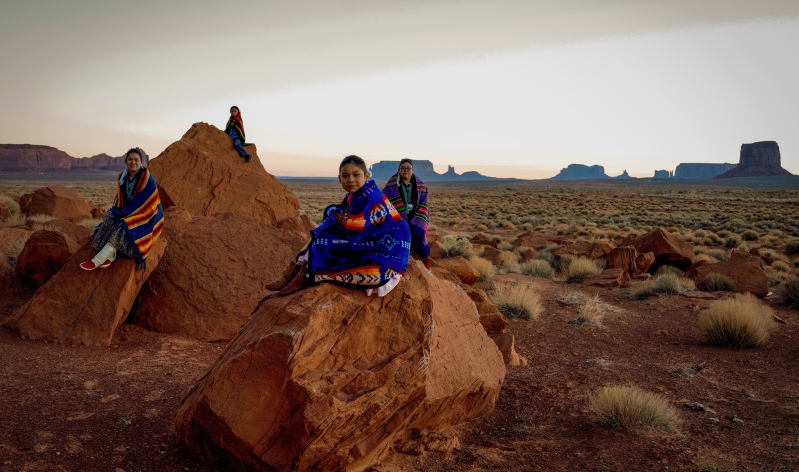
A Fifth Circuit ruling adopts a novel approach to a law that determines where Native children grow up.
A couple’s efforts to adopt two Native children could disrupt more than a decade’s worth of federal law securing tribal oversight of custody and adoption proceedings concerning children eligible for tribal membership.
A recent federal appellate court decision held portions of the Indian Child Welfare Act (ICWA) unconstitutional. This ruling creates confusing precedent for those trying to navigate the law and tees up the case for the U.S. Supreme Court.
ICWA aims to protect Native cultural integrity and community by establishing minimum standards for the removal of eligible children from their families, creating preferences to guide eligible children’s placement in foster or adoptive homes, and by providing assistance for tribes to run child and family service programs.
The U.S. Congress passed ICWA in response to state family law proceedings that removed Native children from their families at vastly varying rates. Although the 1978 law targeted state court family law proceedings that could separate Native families, both state and federal governments in the United States have a history of separating young Native people from their tribes and families.
Chad and Jennifer Brackeen provided foster care for a child of Navajo and Cherokee heritage and sought to adopt him. After resolving a suit that could have pulled the child back into the Navajo community, the Brackeens successfully adopted the child and have sought to adopt his sibling.
Because of the children’s “Indian child” status, ICWA requires that courts give preference to placements with a member of their extended family, other members of their tribe, and other Indian families versus members of the general U.S. public. It also stipulates that interested parties can challenge each child’s adoption in court for up to two years after its completion.
The Brackeens sued, challenging ICWA’s constitutionality in hopes of better securing custody of the Native children in their care. Other non-Indian families hoping to adopt Indian children and the states of Texas, Louisiana, and Indiana, joined forces with the Brackeens to argue that ICWA is unconstitutional.
Tribes, however, fight to uphold ICWA, arguing that the suit is a “misguided attack on a law that is crucial for protecting the well-being of Indian children and Indian sovereignty.”
States traditionally control family law in the United States, but the federal government maintains a “trust relationship” with federally recognized Indian tribes. As states play a limited role in tribal governance and are not always sensitive to tribal needs, tribes have balked at states’ disproportionate eagerness to remove children from tribal communities compared to other demographic groups. Although the federal government’s relationship has grappled with imperialist overtones since the founding, Congress has since passed legislation—including ICWA, the Native American Graves Protection and Repatriation Act, and provisions of the Violence Against Women Act—that aim to protect Native nations.
In the Brackeens’ suit, the trial court ruled that ICWA contained an unconstitutional racial classification. The Fifth Circuit reversed, holding that ICWA was constitutional because it concerns members of a political, rather than racial, class. The Fifth Circuit, however, requested the case be reheard by all the judges on the court—and that decision, known as an “en banc” decision, declared some aspects of ICWA constitutional and others not.
The Fifth Circuit’s en banc decision reaffirmed that the status of “Indian child” is not an unconstitutional racial classification. The court held, however, that references to “other Indian families” are an unconstitutional racial classification.
The Fifth Circuit also deemed some ICWA provisions—such as expert witness testimony and recordkeeping requirements—unconstitutional anti-commandeering of state resources. Still, the court upheld the private rights that ICWA guarantees as well as the federal preemption of state family law.
Finally, the court held that a Bureau of Indian Affairs regulation implementing ICWA violated the Administrative Procedure Act several times: by concerning “other Indian families,” by commandeering state resources, and by implementing ICWA’s “good cause” requirement for a child’s removal by requiring proof by clear and convincing evidence. These deemed constitutional violations mostly reinforce ICWA provisions the Fifth Circuit held unconstitutional earlier in the Brackeen opinion.
These piecemeal determinations arise because although Judge James L. Dennis wrote an opinion largely supportive of ICWA and its constitutionality and Judge Stuart Kyle Duncan wrote an opinion mostly denying the law’s constitutionality, the remaining Fifth Circuit judges’ votes varied on individual issues. The fact that several of the court’s determinations do not constitute binding precedent due to tied votes among the judges further complicates the ruling.
Because the Fifth Circuit opinion splits from other circuits about some aspects of ICWA’s constitutionality and the opinion uniquely parses these determinations of constitutionality, the Supreme Court may take on an appeal of the case.
If it does not, the Fifth Circuit’s ruling will likely add confusion to lawyers’ and child welfare officials’ ability to manage Native children present in state child welfare systems.



